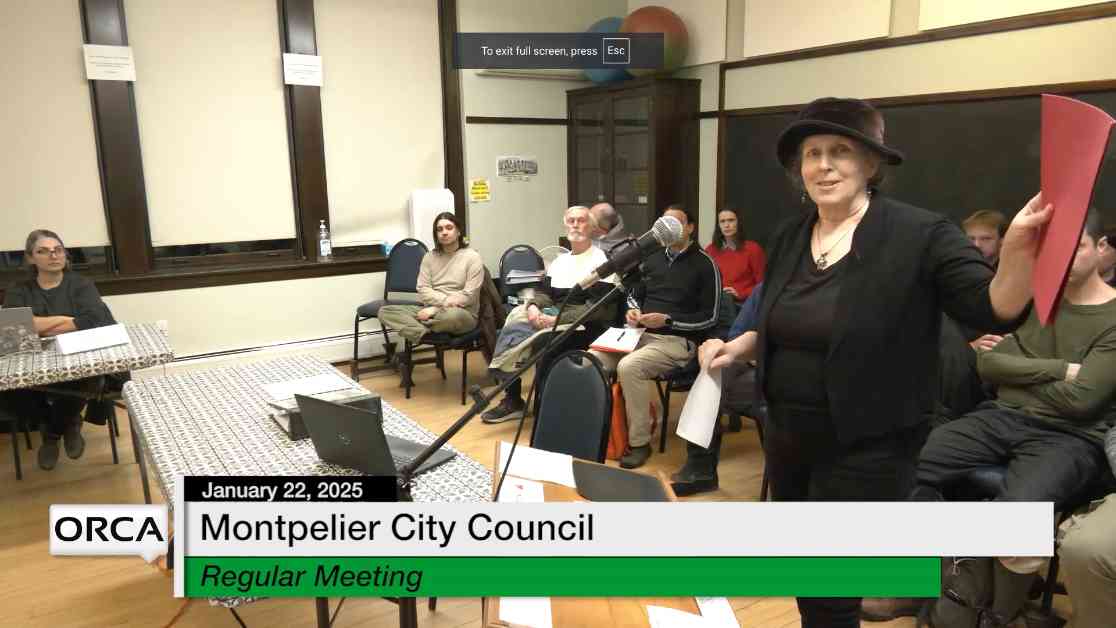Montpelier City Council Navigates Tax Increases and Local Option Levies
The Montpelier City Council recently made significant decisions during its Jan. 22 meeting, setting the stage for a pivotal Town Meeting Day on March 4. The council approved an $18.9 million budget, with $12.2 million expected to be raised through taxes. This comes in the midst of a challenging financial landscape, marked by a push from voters to limit tax hikes. As the final verdict rests with the residents, a 4.77% increase in property tax rates is on the horizon if the proposed budget, including additional funding for the Kellogg-Hubbard Library, is ratified.
Divisive Debates and Funding Dilemmas
During the council session, a series of contentious discussions unfolded, centered around critical issues such as the funding for Montpelier Alive and the introduction of a 1% local option sales tax. The vote on funding for Montpelier Alive, which determines the organization’s financial source, sparked a 4-2 split among council members. While the decision to transition funding from the Downtown Improvement District Tax rate to a potential $50,000 from the new local option tax favored by the majority, some councilors expressed reservations. Councilor Pelin Kohn voiced discomfort in prioritizing specific allocations over essential services like transportation, highlighting the complexities of budgetary trade-offs in serving the community.
The introduction of the 1% local option tax emerged as a pivotal point of contention, with initial skepticism gradually giving way to cautious support among council members. Despite early reservations, Councilor Cary Brown acknowledged the necessity of letting voters decide on the implementation of the tax, underscoring the delicate balance between financial sustainability and citizen consent. Should the tax gain approval, it will be layered on top of the existing 6% state sales tax, with exemptions for essential items like food, clothing, and medications. The potential impact on residents’ tax burden remains a focal point of deliberation, intertwining fiscal concerns with the broader narrative of community welfare and economic vitality.
Community Voices and Advocacy
Amidst the bureaucratic intricacies of budget planning and tax proposals, local voices resonated through the council chambers, offering poignant insights and impassioned pleas. From Peter Kelman’s impassioned call for voter empowerment to Tina Muncy’s plea for equitable budget adjustments, citizens articulated a spectrum of concerns and aspirations. Stephen Whitaker’s poignant reminder of societal values and Elizabeth Parker’s advocacy for vulnerable populations underscored the multifaceted impact of fiscal decisions on community well-being. As stakeholders across Montpelier navigate the complexities of tax policy and civic engagement, the spirit of civic activism and collective stewardship illuminates the path forward.
As the countdown to Town Meeting Day draws near, residents are poised to exercise their democratic prerogative, shaping the financial trajectory and civic landscape of Montpelier. The deliberations and decisions of the City Council reflect the intricate tapestry of governance, finance, and community dynamics, underscoring the enduring relevance of local democracy in the heart of Vermont. In the crucible of budgetary challenges and tax reform initiatives, the voices of the people echo with resilience, shaping a narrative of collective empowerment and shared responsibility.
With Town Meeting Day on the horizon, Montpelier stands at a crossroads of fiscal stewardship and civic engagement, inviting residents to chart a course for the city’s future. As the City Council grapples with budgetary dilemmas and funding priorities, the pulse of democracy beats in the heart of Vermont’s capital, resonating with the hopes, fears, and aspirations of its diverse citizenry. Through the collective voices, advocacy efforts, and policy debates that animate the civic arena, Montpelier embarks on a journey of shared governance and community resilience, forging a path forward in the spirit of collaboration and civic renewal.


















